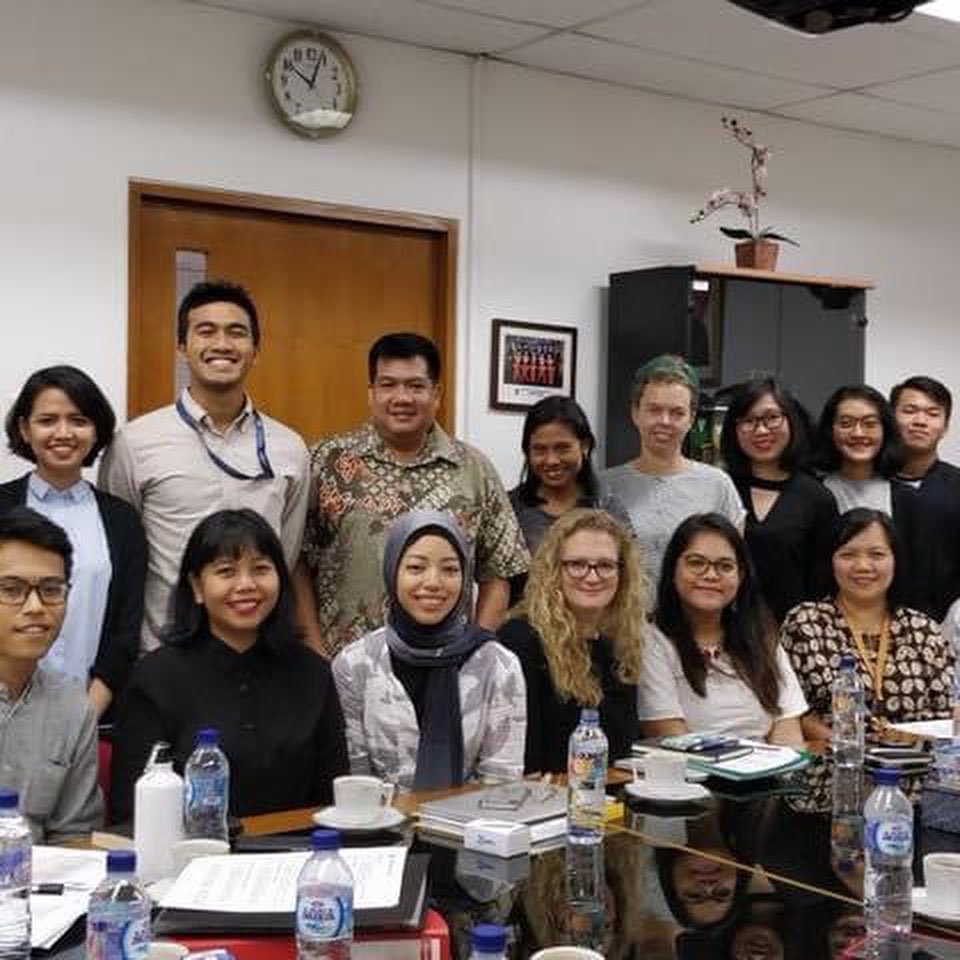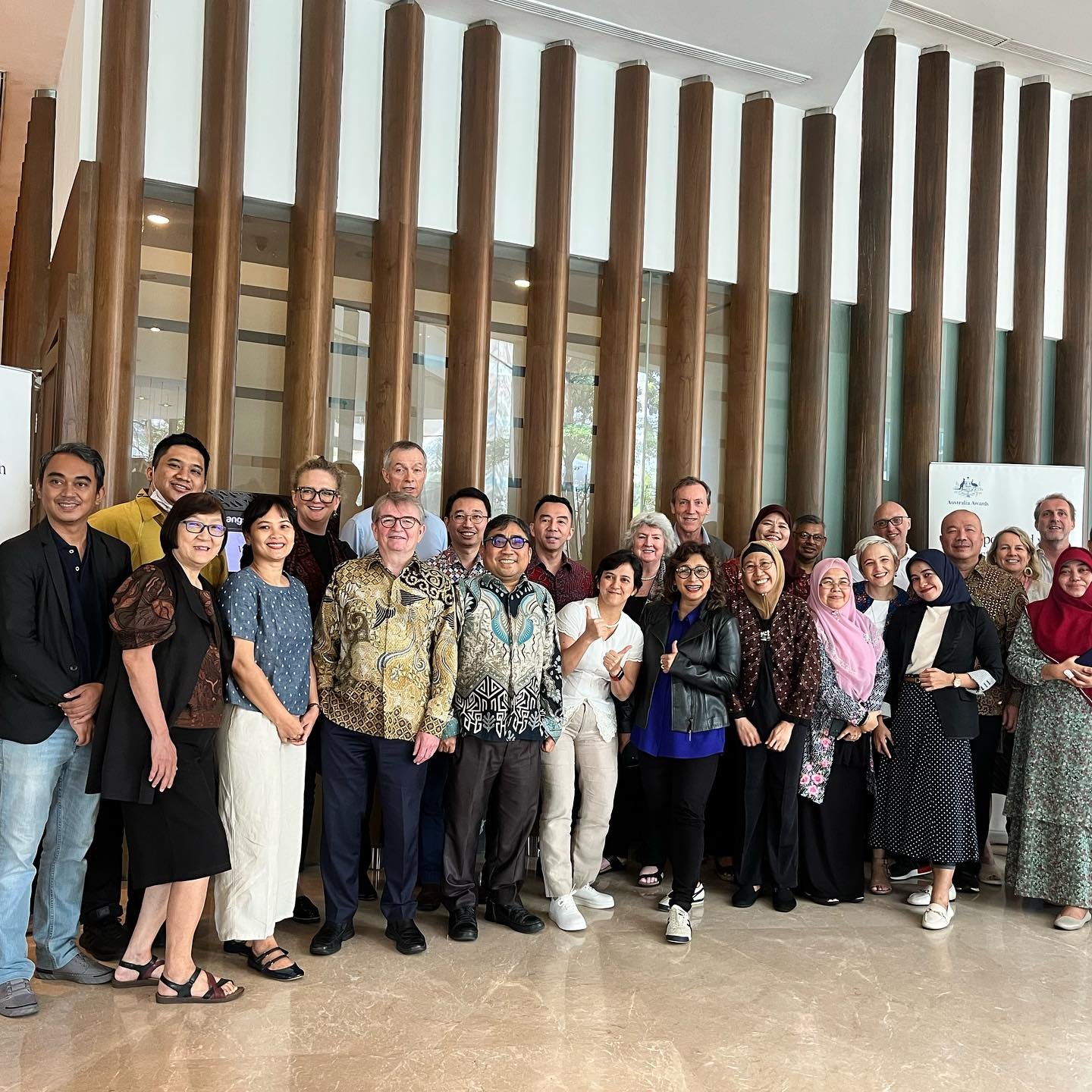Indonesia Council Digest - November 2023
Thanks to those of you who provided feedback on the proposed changes to the Indonesia Council – we really do love hearing from you. As outlined in last month’s newsletter,
We propose that Indonesia Council members will receive the following benefits:
Indonesia Council Early Career Book Prize (awarded biennially)
Dedicated postgraduate events
Monthly newsletter
Other events, activities and subsidies as suggested by you
Our proposed membership categories are:
Ordinary (fixed term and continuing academic staff)
Postgraduate students and casual academics
Retirees
Corporate / institutional
High school and undergraduate students
Members based in low-income Southeast Asian countries (does not include PhD students based in Australia)
We’re hoping to replicate the model currently in use by other sub-regional associations whereby joint Indonesia Council–ASAA membership is offered at a discount. This proposal is presently under consideration by ASAA so we will be in touch once we have an update and more information about the proposed fees. If you’ve got some thoughts on our proposal, please don’t hesitate to drop us a line at iclistdata@gmail.com.
Until next month, Natali
What's Happening
Forgive my blatant self promotion but it’s not often you get to launch a book. Join me and Associate Professor David Reeve tomorrow, Thursday 23 November, to launch my new book Belitung: The Afterlives of a Shipwreck, at Gleebooks in Sydney from 6-8pm. It’s free but registration is essential.
Meanwhile, the Indonesia Institute has a special webinar to coincide with Human Rights Day on 7 December (4pm-5.30pm AEDT, 12pm-1.30pm WIB, 6am-7.30am CET), focusing on ‘The state of environmental rights in Indonesia’. Featuring Professor Ward Berenschot (KITLV Leiden), Ms Fadilla Octaviani (Indonesia Ocean Justice Initiative) and Anto Sangadji (Mineral, Energy, and Labor Transformation Research Group), this seminar will delve into three crucial sectors in Indonesia: palm oil plantations, nickel mining, and fisheries. Looks fascinating! More info and register here.
If you feel like staying in, take a look at the new Netflix series screening in Australia, Gadis Kretek (Cigarette Girl). According to Netflix, “Racing against the time, Lebas must find Dasiyah, an important figure to his father in the past. Accompanied by Arum, Lebas discovers a story full of intrigue in his family’s cigarette industry in the 1960s.” The trailer is gorgeous and it’s been well reviewed by Jemma Purdey, who knows her film stuff!
Meanwhile, Eve Warburton has joined the New Books in Southeast Asian Studies podcast to talk about her new book on resource nationalism in Indonesia. Listen here!
Vale Dr Amanda Shiller
On 24 October, 2023, we were devastated to hear of the sudden passing of Dr Amanda Schiller. Amanda was a PhD researcher and staff member at Flinders University in Indonesian and development studies, who then went on to work with The Australian Consortium for 'In-Country' Indonesian Studies (ACICIS) and The Australia Awards most recently in Jakarta. Amanda was an absolute champion of Australia-Indonesia friendship, passionate about development, education, and social justice. Our thoughts are with her family, friends and Australia Awards colleagues at this time. Should you wish to leave a note of condolence for her family, you can do so via this link.
Publications
We’ve got two new articles to share this month, both of which have been published as part of the Australian Journal of Asian Law’s special issue on the death penalty.
Tim Lindsey, Samira Lindsey, Ricky Gunawan, Aisya Humaida and Sara Kowal, ‘In Limbo: Sakak bin Jumak, the Death Penalty and Criminal Injustice in Indonesia’, The Australian Journal of Asian Law, 2023, volume 24 issue 1 article 5, pp 47-66.
In Indonesia, prisoners condemned to death can be left in legal limbo for years. After his conviction for murder in 1995, Sakak bin Jumak sat on death row for more than a quarter of a century before falling physically and mentally ill and dying there. The marginalisation of law is pervasive at each stage of the criminal process that leads to implementation of the death penalty in Indonesia. Like Sakak, many inmates reach death row only after a series of abuses of their legal rights. Using Sakak’s experience as case study, this article investigates a series of rights that are, in principle, available at Indonesian law to defendants facing arrest, trial, imprisonment, and the clemency process. By investigating the ways these rights are dealt with in practice, this article aims to offer insight into some of the many legal and institutional problems that render Indonesia’s criminal justice system as a whole, and its death penalty regime in particular, dysfunctional. It concludes by briefly considering reforms that, while facing many obstacles to implementation, could encourage greater observance of these rights, make executions less common, and protect others from being lost on death row, as was Sakak.
Daniel Pascoe, ‘Indonesia’s Revised Criminal Code and the Death Penalty – Progress Amid the Gloom?’, The Australian Journal of Asian Law, 2023, volume 24 issue 1 article 6, pp 67-81
Indonesia’s long-mooted revised Criminal Code, or KUHP (Kitab Undang-undang Hukum Pidana), was finally passed by the country’s legislature on 6 December 2022, although it will not come into force until January 2026. Since redrafting efforts began back in 1980, the death penalty has proven one of the most fiercely debated issues. The revised Criminal Code ultimately retains capital punishment as a discretionary judicial sanction but includes several new provisions regulating capital sentencing in arts 100 and 101. Based on statutory interpretation, post-Reformasi empirical trends and interviews with experts conducted in Jakarta over the past five years, this article traces the history of the Criminal Code’s death penalty provisions, provides prognostication on how the relevant provisions may end up being interpreted, and argues that the new regulations are more liberal than they might otherwise have been. Nonetheless, from an abolitionist perspective, there remain several concerning features of Indonesia’s new death penalty regime that future legislative changes or prosecutorial restraint might seek to alleviate.
Jobs
John Legge Fellowship in Indonesian History @ Monash University
Monash has received a philanthropic grant to fund a three year, full-time postdoc in Indonesian history – wowee! They are keen to appoint for 2024 so check out the recruitment ad here. The closing date is 14 December.




